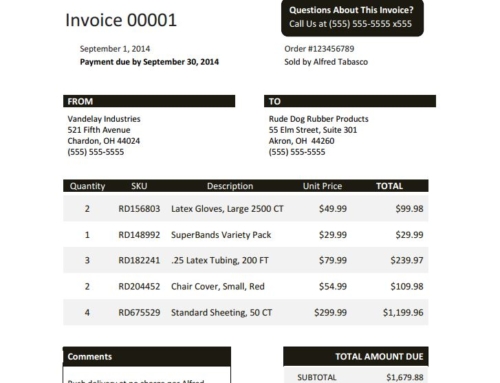Just because it is your job, or at least part of your job, to call customers and ask them why they have not yet paid their invoice, does not mean you enjoy every call you make. Making collection calls can be awkward, uncomfortable, time consuming and, at times, unproductive- but they don’t have to be. When you’re able to go into the conversation knowing exactly what you need to say, the customer’s standing with your company, access to all of the information you need, and a goal in mind for the call, these phone conversations can be far less painful for you and the customer and help you get paid faster.Below is a quick check list to work through prior to making a collection call.
- How far past due is the customer? This will help you decide how forceful you need to be.
- Have all products/services been delivered? Were they on time?
- How much is owed? This is another important factor to help you gauge your tone and goals.
- Set an objective for the call. Are you looking to get credit card information over the phone? A promise to pay? etc. You cannot just call to call, you need to have a clear goal if you want to be effective.
- Is this customer a high credit risk, medium risk, or low risk?
- What are the likely objections the customer will make? Look into customer history and think about anything they may bring up from the past to further delay or deny payment. Even if they are a new customer, there are some common excuses out there; for example, “the check is in the mail.” Be sure to think ahead and have a response to all possible excuses or objections to help you keep on track to reaching your goal for the call.
- How long has this customer been a customer? Customers with a long history with your company are less risky than new customers, take a look at their payment history before you call them. If this is a customer who is usually on time or slightly late, but you’re showing them 15 days past due, they could be going through a financial crisis. You can use that information to ask them questions, work out payment plans, and re-evaluate their credit worthiness and credit terms to ensure the future protection of your own finances.
- Are you at the point with this customer that it’s time to kick it up a notch and warn them that is payment is not submitted there will be penalties? Be careful here and be sure all other strategies have been exhausted.
Getting organized prior to the call is critical to being fast and effective, but it’s not easy when all of the data you need is buried in spreadsheets, emails, and other disconnected systems. With this strategy, collectors spend more time preparing for calls and updating information than they do actually talking to customers which does not help you get paid any faster. If this sounds familiar, consider an accounts receivable management system that can help you manage your information in a central location, but automate your most time consuming processes so you can spend more time calling customers, not updating your spreadsheets or looking for information. A/R management software is that it tells collectors exactly who to call, when, and why, with all of the information they need to be more productive all in one screen.




